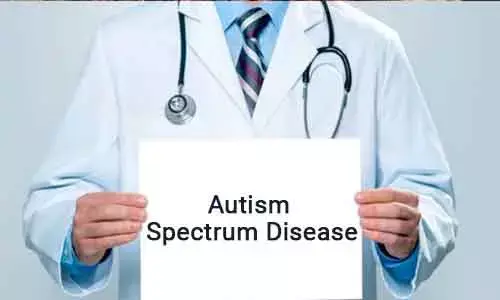- Home
- Medical news & Guidelines
- Anesthesiology
- Cardiology and CTVS
- Critical Care
- Dentistry
- Dermatology
- Diabetes and Endocrinology
- ENT
- Gastroenterology
- Medicine
- Nephrology
- Neurology
- Obstretics-Gynaecology
- Oncology
- Ophthalmology
- Orthopaedics
- Pediatrics-Neonatology
- Psychiatry
- Pulmonology
- Radiology
- Surgery
- Urology
- Laboratory Medicine
- Diet
- Nursing
- Paramedical
- Physiotherapy
- Health news
- Fact Check
- Bone Health Fact Check
- Brain Health Fact Check
- Cancer Related Fact Check
- Child Care Fact Check
- Dental and oral health fact check
- Diabetes and metabolic health fact check
- Diet and Nutrition Fact Check
- Eye and ENT Care Fact Check
- Fitness fact check
- Gut health fact check
- Heart health fact check
- Kidney health fact check
- Medical education fact check
- Men's health fact check
- Respiratory fact check
- Skin and hair care fact check
- Vaccine and Immunization fact check
- Women's health fact check
- AYUSH
- State News
- Andaman and Nicobar Islands
- Andhra Pradesh
- Arunachal Pradesh
- Assam
- Bihar
- Chandigarh
- Chattisgarh
- Dadra and Nagar Haveli
- Daman and Diu
- Delhi
- Goa
- Gujarat
- Haryana
- Himachal Pradesh
- Jammu & Kashmir
- Jharkhand
- Karnataka
- Kerala
- Ladakh
- Lakshadweep
- Madhya Pradesh
- Maharashtra
- Manipur
- Meghalaya
- Mizoram
- Nagaland
- Odisha
- Puducherry
- Punjab
- Rajasthan
- Sikkim
- Tamil Nadu
- Telangana
- Tripura
- Uttar Pradesh
- Uttrakhand
- West Bengal
- Medical Education
- Industry
Cord blood may benefit autistic children without an intellectual disability only

DURHAM, N.C. -- In a recent study, Duke researchers tested whether a single infusion of a unit of a child's own or donor cord blood could improve social communication skills in children between the ages of 2-7 diagnosed with an autism spectrum disorder.
Of the 180 children in the study, the subgroup of children without an intellectual disability showed improvements in language communication, ability to sustain attention measured via eye-tracking, and increased alpha and beta EEG power, a measure of brain function.
However, those who also had an intellectual disability did not show social communication function improvement after the infusion.
The findings are publishing online in The Journal of Pediatrics.
"Cord blood contains immune-modulating cells called monocytes," said Joanne Kurtzberg, M.D., Jerome S. Harris Distinguished Professor of Pediatrics, director of the Marcus Center for Cellular Cures and a pioneer in the use of cord blood treatments. "In the laboratory, these cells calm down a type of brain inflammation that can be seen in children with autism. In this study, we tested whether cord blood infusions would lessen symptoms in children with autism."
Approximately 40 percent of children with autism also have an intellectual disability, as defined as an IQ below 70, according to first author Geraldine Dawson, Ph.D., director of the Duke Institute for Brain Sciences and the William Cleland Distinguished Professor of Psychiatry and Behavioral Sciences.
More research is needed to determine why the findings in this study are different between those with and without an intellectual disability, and whether the treatment could be altered to be beneficial to more children.
"It is unclear whether the failure for children with an intellectual disability is due to the short duration of the study, the outcome measures not being sensitive enough to detect a change in this population or that the cord blood is actually not an effective treatment for children with autism who also have an intellectual disability," Dawson said.
"We learned a lot from this initial study," said Kurtzberg, senior author on the manuscript. "In the future, we hope to conduct a trial designed for children with autism who have intellectual disability focusing on outcome measures that can be targeted to test this group of children. We also used lessons learned from this study to design an ongoing study testing other cell therapies in older children with autism without intellectual disability."
"Overall, we are encouraged by these initial results and plan to build upon them in future studies of cellular therapies in children with autism," Kurtzberg said.
Hina Zahid Joined Medical Dialogue in 2017 with a passion to work as a Reporter. She coordinates with various national and international journals and association and covers all the stories related to Medical guidelines, Medical Journals, rare medical surgeries as well as all the updates in the medical field. Email: editorial@medicaldialogues.in. Contact no. 011-43720751
Dr Kamal Kant Kohli-MBBS, DTCD- a chest specialist with more than 30 years of practice and a flair for writing clinical articles, Dr Kamal Kant Kohli joined Medical Dialogues as a Chief Editor of Medical News. Besides writing articles, as an editor, he proofreads and verifies all the medical content published on Medical Dialogues including those coming from journals, studies,medical conferences,guidelines etc. Email: drkohli@medicaldialogues.in. Contact no. 011-43720751


